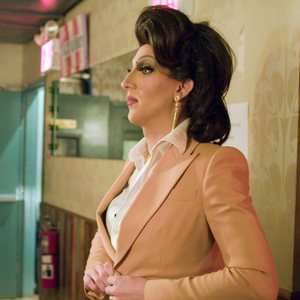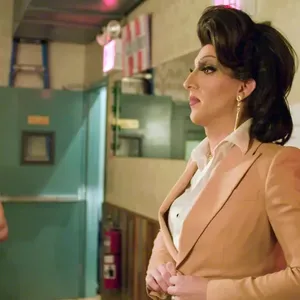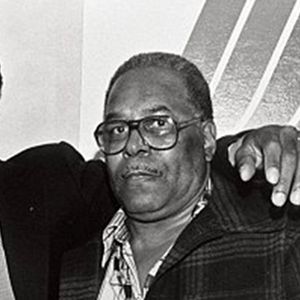CONTACTStaffCAREER OPPORTUNITIESADVERTISE WITH USPRIVACY POLICYPRIVACY PREFERENCESTERMS OF USELEGAL NOTICE
© 2024 Pride Publishing Inc.
All Rights reserved
All Rights reserved
By continuing to use our site, you agree to our Private Policy and Terms of Use.
In Ottawa, Canadian clergy are watching closely as the supreme court turns its attention at long last to the government's proposal to legalize same-sex marriage. Some are worried they will have to perform such marriages against their beliefs if, as expected, the plan passes muster. The court was scheduled to begin hearings on the matter Wednesday. "We are very confident that the supreme court will confirm what many judges have said across the country," said Laurie Arron of gay advocacy group Egale Canada. The courts of six Canadian provinces or territories have ruled to allow same-sex marriages. British Columbia, Ontario, and Quebec allowed gay marriages in 2003, the Yukon Territory followed in July, and Manitoba and Nova Scotia last month. The Saskatchewan court is expected to rule this month. Canada would join Belgium and the Netherlands in allowing same-sex marriages. Several U.S. states are wrestling with issue. Massachusetts's top court recently allowed same-sex marriages, but the issue has run into legal disputes elsewhere. In Canada few people on either side expected the court to rule against same-sex marriage. However, some were concerned about how the law would be implemented. Janet Buckingham of the Evangelical Fellowship of Canada said churches want the high court to spell out protections for clergy unwilling to perform such marriages. However, most constitutional experts agree that provisions for religious freedom in Canada's Charter of Rights already protect the clergy from performing ceremonies they don't support. Three days have been set aside for the hearings, and the court is expected to rule next year. It's the final lap in what one supporter called "a very long marathon." The Canadian Conference of Catholic Bishops says the courts don't have the authority to change the definition of marriage. "Because it preexists the state and because it is fundamental for society, the institution of marriage cannot be modified, whether by the Charter of Rights, the state, or a court of law," the conference argues. "Enlarging, and thereby altering, the definition of marriage in order to include same-sex partners discriminates against marriage and the family and deprives them of social and legal recognition as the fundamental and irreplaceable basis of society." The United Church of Canada, however, argues that extending marriage rights to gays and lesbians is "a victory for human dignity." The court will hear 28 briefs on both sides of the issue.
Want more breaking equality news & trending entertainment stories?
Check out our NEW 24/7 streaming service: the Advocate Channel!
Download the Advocate Channel App for your mobile phone and your favorite streaming device!
From our Sponsors
Most Popular
Here Are Our 2024 Election Predictions. Will They Come True?
November 07 2023 1:46 PM
17 Celebs Who Are Out & Proud of Their Trans & Nonbinary Kids
November 30 2023 10:41 AM
Here Are the 15 Most LGBTQ-Friendly Cities in the U.S.
November 01 2023 5:09 PM
Which State Is the Queerest? These Are the States With the Most LGBTQ+ People
December 11 2023 10:00 AM
These 27 Senate Hearing Room Gay Sex Jokes Are Truly Exquisite
December 17 2023 3:33 PM
30 Steamy Photos of Folsom Street Fair 2023 Debauchery
October 15 2023 11:06 PM
10 Cheeky and Homoerotic Photos From Bob Mizer's Nude Films
November 18 2023 10:05 PM
42 Flaming Hot Photos From 2024's Australian Firefighters Calendar
November 10 2023 6:08 PM
These Are the 5 States With the Smallest Percentage of LGBTQ+ People
December 13 2023 9:15 AM
Here are the 15 gayest travel destinations in the world: report
March 26 2024 9:23 AM
Watch Now: Advocate Channel
Trending Stories & News
For more news and videos on advocatechannel.com, click here.
Trending Stories & News
For more news and videos on advocatechannel.com, click here.
Latest Stories
White House announces new rules on background checks for firearms sales in America
April 11 2024 5:00 AM
'Florida has a First Amendment problem' — judge rules trans teacher can use 'Ms.'
April 10 2024 6:33 PM
Here's why soccer fans are booing USWNT player Korbin Albert
April 10 2024 6:26 PM
Trans and nonbinary migrants file complaint over treatment at ICE detention facility
April 10 2024 6:00 PM
X likely profited from promoted post calling for LGBTQ+ death penalty
April 10 2024 3:11 PM
Giselle Byrd is taking center stage — and helping others do the same
April 10 2024 2:15 PM
How Beyoncé's Cowboy Carter advances equality
April 10 2024 1:39 PM
The North Face faces conservative boycott for sponsoring a queer summer camp (exclusive)
April 10 2024 8:26 AM
Trending stories
Most Recent
Recommended Stories for You



















































































